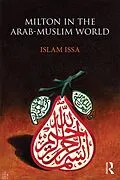The first full-length study of the reception of John Milton's (1608-74) writings in the Arab-Muslim world, this book examines the responses of Arab-Muslim readers to Milton's works, particularly Paradise Lost. It contributes to knowledge of the history, development, and ways in which early modern writings are read and understood by Muslims, analysing a range of literary and religious aspects of Milton's writing in light of the cultural, theological, socio-political, linguistic and translational contexts of the Arab world.
Autorentext
Islam Issa is Lecturer in English Literature at Birmingham City University, U.K.
Zusammenfassung
The first full-length study of the reception of John Milton´s (1608-74) writings in the Arab-Muslim world, this book examines the responses of Arab-Muslim readers to Milton´s works, and in particular, to his epic poem: Paradise Lost. It contributes to knowledge of the history, development, and ways in which early modern writings are read and understood by Muslims. By mapping the literary and more broadly cultural consequences of the censure, translation and abridgement of Milton´s works in the Arab-Muslim world, this book analyses the diverse ways in which Arab-Muslims read and understand a range of literary and religious aspects of Milton´s writing in light of cultural, theological, socio-political, linguistic and translational issues. After providing an overview of the presence of Milton and his works in the Arab world, each chapter sheds light on how cultural and translational issues shape the ways in which Arab-Muslim readers perceive and understand the characters and motifs of Paradise Lost. Chapters outline the ways in which the figures are currently understood in Milton scholarship, before exploring how they fit into the narrative drama and theology of the poem, and their position in Islamic creed and Arab-Muslim culture. Concurrently, each chapter examines the poem´s subject matter in detail, placing particular emphasis on matters of linguistic, theological and cultural translation and accommodation. Chapter conclusions not only summarise the patterns and potentialities of reception, but point towards the practical functions of Arab-Muslim responses to Milton´s writing and their contribution to the formation of social ideas.
Inhalt
Table of Contents
List of Illustrations
Acknowledgements
Transliteration Guide
Texts and Abbreviations
Note on Translations and References
Part One
Introduction
John Milton: 'Pious Muslim' and 'Inhumane Zionist'
The Arab-Muslim World
Overcoming Periphery Neglect
Chapter 1. Milton's Presence: Texts and Translations
(1) Milton's Presence
(2) Texts and Translations
Historical Survey
Enani's Theories of Translation
Part Two
Chapter 2. Satan
(1) Satan's Dual Centrality
(2) Satan and the Fallen Angels in Books 1-2
(3) Satan's Psychology and Tactics
(4) Conclusion
Chapter 3. God the Son
(1) The Son, Jesus, and the Challenges of Reception
(2) The Subordination of the Son
(3) The Son's Missions
(4) Conclusion
Chapter 4. God the Father
(1) The Father and the Paradox of Depiction
(2) The Father and Free Will
(3) The Father and Anthropomorphism
(4) Conclusion
Chapter 5. Adam and Eve
(1) Adam, Eve, and [Im]Perfection
(2) The Relationship of Adam and Eve
(3) The Nudity and Sexuality of Adam and Eve
(4) Conclusion
Epilogue
